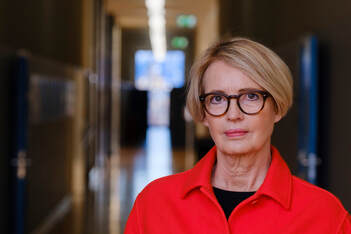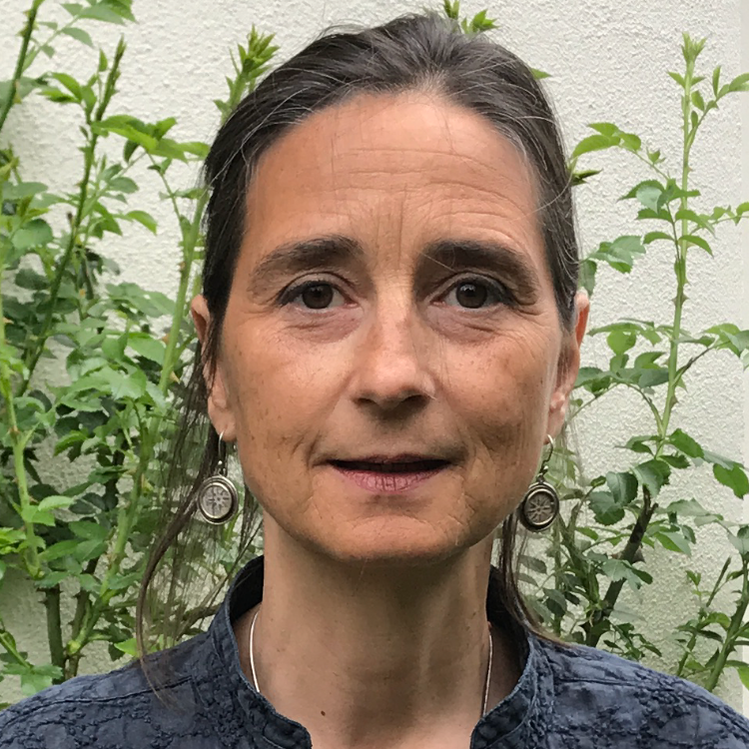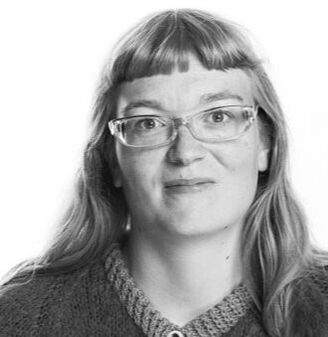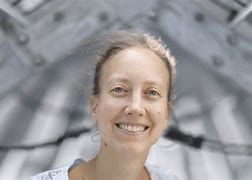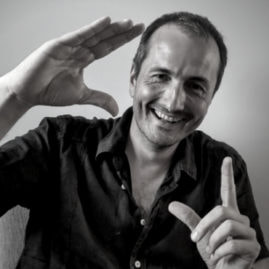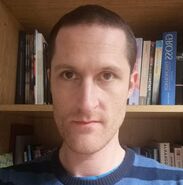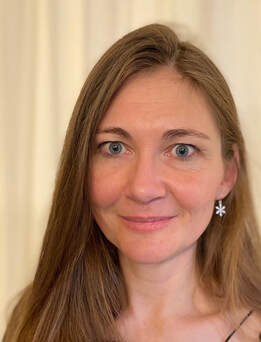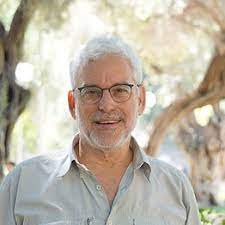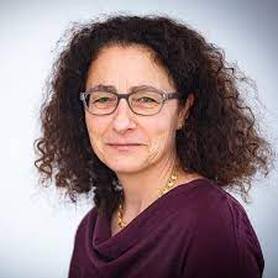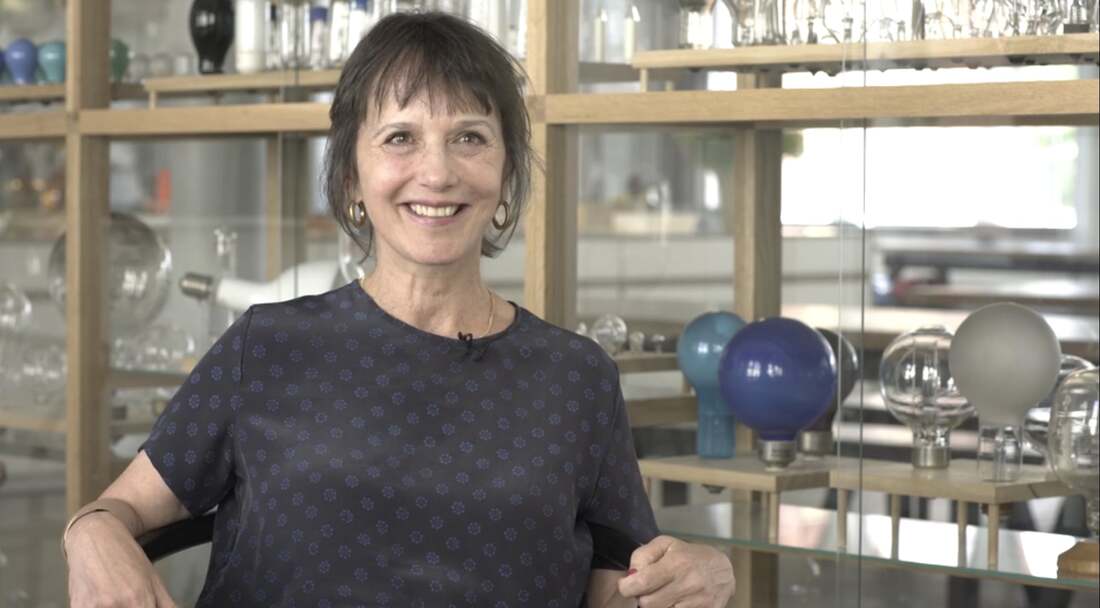TECTU is run by the University of Iceland, along with its partners, the University of Aarhus, the University of Bielefeld, the University of Groningen, the University of Ljubljana, the Technion University in Haifa, the University of St. Gallen (joining in 2025), along with its affiliate partner The Micro-phenomenology Lab in Paris and Mind and Life Europe.
|
Sigridur Thorgeirsdottir is a professor in philosophy at the University of Iceland and principal investigator of the ECT project (www.ect.hi.is). She has published on Nietzsche ́s philosophy, gender philosophy, philosophy of embodiment, the environment and transnational feminist philosophy (as one of the founders of the Gender Equality Studies and Training Programme under the auspices of Unesco). She is board member and chair of the Committee on Gender Issues of FISP, the world organisation of philosophical societies that sponsors the World Congress of Philosophy held every five years, with the upcoming one in Rome in 2024.
|
Sigridur Thorgeirsdottir has previously led a successful Erasmus+ project with three other universities on Gender and Philosophy from 2015-2017 as well as the TECT project from 2021-2023. Thorgeirsdottir ́s expertise on Embodied Critical Thinking and Understanding grew out of her research into embodiment and gender, and she views it as putting into practice of the theoretical work she has pursued all along. ECT is important for her as a teacher of philosophy, training her students to think for themselves. She and Donata Schoeller as well as members and partner organisations of their international research group on ECT are instrumental in advancing this novel field of research. They view TECTU as a break-through methodology for scientific, critical, and philosophical thinking that has implications for education and pedagogy on all levels of education.
|
Professor Donata Schoeller is a guest professor in philosophy at the University of Iceland, a senior lecturer at the University of Koblenz and a principal investigator of the Embodied Critical Thinking project (see ect.hi.is.).Having a philosophical background in classical German philosophy, German mysticism, French phenomenology, American Pragmatism, philosophy of language and contemporary approaches to embodied cognition, she has in recent years become a pioneer in the newly budding research field of Embodied Critical Thinking methods, and a leading expert on the philosophy of Eugene Gendlin (University of Chicago). After her PhD on the concept of humility, she developed the concept of “close talking” to philosophically grasp a gradual unfolding of meaning from experiential backgrounds (funded by the Swiss National Science Fund). At the same time she underwent thorough trainings in Focusing, Thinking-at-the-Edge, Micro-phenomenology and meditation techniques.
|
On the basis of this theoretical work and years of practical training, she developed Embodied Critical Thinking together with Sigridur Thorgeirsdottir. She is an internationally invited teacher of embodied critical thinking approaches and methods. Donata Schoeller has formed a vibrant and motivated community of interdisciplinary research on Embodied Critical Thinking and has published extensively on ECT methods and approaches.
|
Guðbjörg Rannveig Jóhannesdóttir is an assistant professor at Iceland University of the Arts' department of art education and a post-doctoral fellow at the University of Iceland's Institute for philosophy. Environmental philosophy has been at the center of her works from the start of her philosophy studies at the University of Iceland. She completed an MA in Values and the Environment at Lancaster University in 2006 and then returned to the University of Iceland where she completed her PhD studies in 2015. During her studies she also worked as a part-time lecturer, at the University of Iceland from 2006, and at the Iceland University of the Arts from 2012-2015. Her research centers on environmental ethics, phenomenology and aesthetics, and she has published papers and book chapters on landscape, beauty and sensuous knowledge.
|
In her PhD project, Icelandic Landscapes: Beauty and the Aesthetic in Environmental Decision-making, she provides a phenomenological account of the concepts of landscape and beauty, and discusses the meaning and values that are derived from aesthetic experiences of landscapes and the role of such values in environmental decision-making. Her current research within phenomenology and aesthetics focuses on human-environment / body-landscape relations and processes, and their role in human thinking and understanding. She has been an active member of the ECT research team and has training in Thinking at the edge and Focusing. In her teaching at the IUA she has been developing ways to integrate ECT methods into research practices in art and education.
|
University of Groningen is the academic home of Marieke van Vugt who is an expert in computation cognitive neuroscience of mind-wandering, meditation, and decision making. She is the worldwide expert of using computational models to study the effects of meditation on cognition, and used that to demonstrate how to cultivating a process of metacognitive checking of the contents of your thoughts leads to improvements in sustained attention. In addition, she has recently started working with Tibetan monks at Sera Jey monastic university in India to study their practice of monastic debate. Of particular relevance to TECT, monastic debate is an embodied practice (accompanied by moving, shouting, specific gestures) in which participants test their knowledge of a particular topic and explore the consequences of adopting a particular logical position.
|
While it is increasingly used in high schools outside the Tibetan monastery, relatively little research has been done on its effects. Dr. van Vugt is one of the pioneers in doing EEG and behavioral research in this domain. As part of TECT, dr. van Vugt will be teaching lectures in which participants explore their own thinking using the third-person methods of mind-wandering research and first-person methods of mindfulness practice. In addition, she will be involved, together with several Tibetan Buddhist monks, in cross-cultural explorations of embodied critical thinking in West and East, using her expertise on the psychology and neuroscience of Tibetan monastic debate. The TECT network will be attractive to the students in the Artificial Intelligence program where Dr. van Vugt is currently teaching because it does not have many courses on ethics and philosophy, a gap TECT can fill. She has also been experimenting with using this debating method in her own classroom at the University of Groningen.
|
The Center for Cognitive Science of the University of Ljubljana Faculty of Education is primarily focused on interdisciplinary integration of the plethora of research disciplines, constituting the current research on the human mind. As home to the Middle European interdisciplinary master’s program in Cognitive Science at the University of Ljubljana, we are constantly exploring different strategies of bringing together knowledge from neuroscience, cognitive psychology, philosophy, AI, linguistics, and phenomenology. We are leading and participating in several interdisciplinary and transdisciplinary research endeavors, joining contributions from AI, neuroscience, philosophy, psychology, and phenomenology.
The interdisciplinary and connecting work aside, the primary focus of our research work is empirical phenomenology, i.e. the empirical inquiry of lived human experience. We are dedicated to exploring new methodological venues of gathering valid data on human experience and investigating the possibilities of combining data on experience with neuroscientific, and other types of third-person data (i. e., neurophenomenology). Empirical phenomenology research team at the Center for Cognitive Science is currently, among other things, engaged in researching the following topics:
|
The TECT project in Ljubljana will be carried out by Urban Kordeš and Toma Strle at the Center for Cognitive Science at the University of Ljubljana, Faculty of Education. Assoc. prof. Urban Kordeš, the leader of the team, is currently serving as the head of the Middle European interdisciplinary master’s program in Cognitive Science at the University of Ljubljana and the director of the Center for Cognitive Science. He has more than 15 years of research experience within the fields of in-depth empirical phenomenological research, contemplative science, neurophenomenology, collaborative knowledge creation, as well as epistemological and methodological issues in the research of non-trivial systems. He has extensive experience in collaborating in and leading interdisciplinary teams and projects.
Assist. prof. Toma Strle teaches within the Middle European interdisciplinary master’s program in Cognitive Science. He holds a bachelor’s degree in philosophy and a doctorate in philosophy of cognitive science. He has ca 10 years of experience with theoretical research in the fields of cognitive science, epistemology, philosophy of mind, ethics (particularly neuroethics), and decision-making.
|
Katrin Heimann is trained in Philosophy and Cognitive Neuroscience and is currently assistant professor at the Center for Educational Development at Aarhus University where she co-designs and researches on the topic of inclusion and the sense of belonging in academia. After years of first purely theoretical and then purely quantitavie work, in 2015 she was trained in the method of microphenomenology and has ever since focused on developing and employing it in various settings with a focus on the empirical study as well as facilitation of art experience, creative processes and learning both in multi-method settings and as a stand alone tool (see for example her work with artists such as Olafur Eliasson on and ). She has herself experienced this journey as deeply transformational for her identity, both as private person as well as a researcher, leading her to attend the first year of the TECT education as well as currently investing in a focusing training run by Donata Schoeller. Today she is strongly invested in understanding and further developing MP and related research methods as feminist research tools in the sense of Maria Mies and to slowly but steadily use them to make academia a better place for all.
|
|
Technion in Haifa and its environmental designers are forerunners in applying methods of embodied thinking in teaching and research. Professor Ram Eisenberg is a pioneer in applying methods such as Focusing and Thinking-at-the-Edge in the training of students in landscape architecture and design thinking in the context of environment. His research and work with students, demonstrates that experiencing environments more fully and letting oneself be informed by the embodied experience of landscapes fosters a critical awareness of the vulnerability of environmental balances. This awareness enhances creative solutions and a thinking out of the box. Ram Eisenberg has been an active partner of the Icelandic initiative Embodied Critical Thinking, contributing to the group the environmental relevance of theories and practices of embodied cognition. |
Through these interventions, ECT has been integrated at the Technion as a pedagogical tool for training in design thinking in the context of environments. Ram Eisenberg has developed a course, together with lecturer Dana Ganihar, that incorporates ECT in the faculty’s curriculum, combining it with the work of the landscape architecture studio. He has also organized several workshops at the Technion with leading international ECT experts. Currently, he is heading a monthly/bimonthly ECT group for faculty and advanced researchers. At the Technion, ECT has further been developed for scientific research by Prof. Daniel Orenstein and Dr. Yael Teff-Seker, who are the first to use ECT for the assessment of cultural ecosystem services, which is intended to support environmental planning and management. In their work, they developed a new and innovative application of “focusing”, an ECT approach established by philosopher and psychologist Eugene Gendlin. Dr. Teff-Seker is currently further developing the potential applications of focusing and ECT as a method for scientific discovery, analysis and reflection. The environmental emphasis of the work done at the Technion is particularly relevant to ECT.
|
Tomke König and Heinke Deloch contribute to the experiential-gender based methodologies and the sociological approaches of the training of embodied critical understanding. Their work significantly strengthens the focal points of society and gender. The relevance of experiential theory-building in these contexts will be at the core of her teaching at the TECTU webinars and summer schools.
Tomke König is head of the Interdisciplinary Center for Gender Studies (IZG), Bielefeld University’s oldest, and renowned institution for gender studies in Germany. Within this center, positions and innovative ideas are developed, significantly influencing ongoing debates on gender. The IZG was also involved in the foundation of the MA Gender Studies - Interdisciplinary Research and Application (since 2007), in which educational science, health sciences, history, literature, sociology and sports science participate. Students of this interdisciplinary study program are highly motivated and open to innovative research methods. Moreover, Tomke König leads a DFG-funded interdisciplinary Research Training Group titled 'Gender as Experience: Constitution and Transformation of Being in the World' with a duration from May 2021 to October 2025. This research and study program places a central emphasis on experiential and body-related methods. These interdisciplinary approaches ensure a systematic connection between discipline-specific methods and strive to maintain open dialogues between various disciplines. Furthermore, the application of experiential research methods serves to explore the materiality of gender without reverting to essentialist approaches. |
Heinke Deloch (www.experientielle-beratung.de), Philosophy/English Philology and Political Science (M.A.), is a freelance trainer for Experiential and Person-Centered Counseling (GwG e.V., WAPCEPC e.V.) and co-founder of the creativity and coaching method Experiential Concept-Coaching, which makes the concretely felt physical-bodily experience the point of reference for creative thinking. Based on Ludwig Wittgenstein's Ordinary Language Philosophy and Eugene Gendlin's approach of Experiential, Focusing-oriented Psychotherapy, she is interested in formulating and shaping a practice of science that starts with the personality of the scientist, including her implicit experiences and interests that are still difficult to articulate in language. She pays particular attention to the inclusion of bodily sensing and the gradual unfolding of linguistic meanings, as well as to the mutual recognition and intertwining of these processes in collaborative thinking processes. In her publications in the context of counseling and psychotherapy, she is also concerned with the intertwining of psychological, linguistic philosophical and phenomenological aspects of creative, self-determined and holistic thinking.
Affiliate partners
|
The Micro-phenomenology Laboratory is a globally leading center in establishing micro-phenomenology as a new scientific discipline that enables one to explore lived experience very finely: what's happening when an idea comes? When suddenly an intuition comes back? When we feel motivated? When we approach an interesting subject matter, or are overwhelmed with a research task? When we read a scientific text, or write a paper? These phenomena, which constitute the very texture of our cognitive life, are difficult to describe, and have thus far been excluded from scientific investigation. Research of the Micro-phenomenology Laboratory demonstrates how one can learn to describe experience very accurately and reliably, and discover its ordinarily inaccessible dimensions, through appropriate methods.The development of this "psychological microscope" opens vast fields of investigation in the educational, technological, artistic and contemplative domains.
|
The participation of Prof. Claire Petitmengin, who is the scientific director of the Micro-phenomenology Laboratory, is thus of key importance for the TECT. With the practice of micro-phenomenology students, trainees and researchers gain a new relation to the richness and the precision of their experience. This practice has the potential to unsettle a limited and one-sided conceptual, technical or computational grasp of one's understanding of a problem. Many members of the TECT-consortium have been trained or are undergoing training offered by Claire Petitmengin and co-teachers at the Micro-phenomenology Lab in Paris.
Mind and Life Europe is a home for unconventional interdisciplinary encounters, where researchers and practitioners enrich one another in their understanding of mind and life, through the rigour of scientific inquiry, the openness of philosophical investigation, the edginess of artistic exploration, and the depth of contemplative wisdom traditions. We believe that holding an open-hearted and interdisciplinary space of dialogue is in itself a radical, ethical mode of being-in-the-world, which generates new pathways of research and collective sense-making with transformative potential.
Mind and Life Europe is a multidisciplinary laboratory for investigating the nature of experience — personal and collective, “first-person” and “third-person,” intersubjective and intrasubjective. We are inspired by cutting-edge theoretical frameworks and methodologies that have grown out of the enactive approach, which takes seriously the continuity between life and mind, body and cognition, theory and practice, and epistemology and ethics. Our aim is to develop practices that surpass the limits of orthodox mind science and advance more nuanced and comprehensive understandings of our minds, the world, and human interactions.
Mind and Life Europe is a home for unconventional interdisciplinary encounters, where researchers and practitioners enrich one another in their understanding of mind and life, through the rigour of scientific inquiry, the openness of philosophical investigation, the edginess of artistic exploration, and the depth of contemplative wisdom traditions. We believe that holding an open-hearted and interdisciplinary space of dialogue is in itself a radical, ethical mode of being-in-the-world, which generates new pathways of research and collective sense-making with transformative potential.
Mind and Life Europe is a multidisciplinary laboratory for investigating the nature of experience — personal and collective, “first-person” and “third-person,” intersubjective and intrasubjective. We are inspired by cutting-edge theoretical frameworks and methodologies that have grown out of the enactive approach, which takes seriously the continuity between life and mind, body and cognition, theory and practice, and epistemology and ethics. Our aim is to develop practices that surpass the limits of orthodox mind science and advance more nuanced and comprehensive understandings of our minds, the world, and human interactions.
